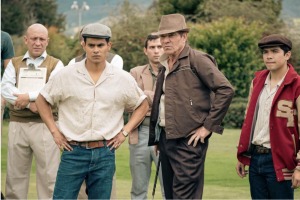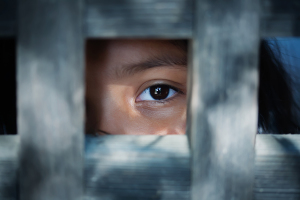Presidential Debate 2012 Video: Transcript Text of Third Obama vs Romney Debate
The third Presidential Debate took place between President Barack Obama and Republican rival Mitt Romney on Monday evening at Lynn University in Boca Raton, Fla.
The debate was moderated by Bob Schieffer of CBS and tackled issues concerning foreign policy. With most Americans focusing on problems at home and in particular the economy, this debate was always threatening to be slightly irrelevant. However, with the race for the White House still wide open, any slight advantage for either candidate could be vital.
GOP candidate, Mitt Romney, was more cordial and less combative than the second debate at Hofstra University on Long Island, even complementing the president on some foreign policy achievements. However, President Obama continued his strong, aggressive method of debating, and by the end there were divided opinions about whether Romney had been too complementary, and also about whether Obama had been too aggressive and "un-presidential."
Here is a video of the full debate:
The following is also a transcript from the third presidential debate courtesy of Politico:
SCHIEFFER: Good evening from the campus of Lynn University here in Boca Raton, Florida. This is the fourth and last debate of the 2012 campaign, brought to you by the Commission on Presidential Debates.
This one's on foreign policy. I'm Bob Schieffer of CBS News. The questions are mine, and I have not shared them with the candidates or their aides.
SCHIEFFER: The audience has taken a vow of silence — no applause, no reaction of any kind, except right now when we welcome President Barack Obama and Governor Mitt Romney.
(APPLAUSE)
Gentlemen, your campaigns have agreed to certain rules and they are simple. They've asked me to divide the evening into segments. I'll pose a question at the beginning of each segment. You will each have two minutes to respond and then we will have a general discussion until we move to the next segment.
Tonight's debate, as both of you know, comes on the 50th anniversary of the night that President Kennedy told the world that the Soviet Union had installed nuclear missiles in Cuba, perhaps the closest we've ever come to nuclear war. And it is a sobering reminder that every president faces at some point an unexpected threat to our national security from abroad.
So let's begin.
SCHIEFFER: The first segment is the challenge of a changing Middle East and the new face of terrorism. I'm going to put this into two segments so you'll have two topic questions within this one segment on the subject. The first question, and it concerns Libya. The controversy over what happened there continues. Four Americans are dead, including an American ambassador. Questions remain. What happened? What caused it? Was it spontaneous? Was it an intelligence failure? Was it a policy failure? Was there an attempt to mislead people about what really happened?
Governor Romney, you said this was an example of an American policy in the Middle East that is unraveling before our very eyes.
SCHIEFFER: I'd like to hear each of you give your thoughts on that.
Governor Romney, you won the toss. You go first.
ROMNEY: Thank you, Bob. And thank you for agreeing to moderate this debate this evening. Thank you to Lynn University for welcoming us here. And Mr. President, it's good to be with you again. We were together at a humorous event a little earlier, and it's nice to maybe funny this time, not on purpose. We'll see what happens.
This is obviously an area of great concern to the entire world, and to America in particular, which is to see a — a complete change in the — the structure and the — the environment in the Middle East.
With the Arab Spring, came a great deal of hope that there would be a change towards more moderation, and opportunity for greater participation on the part of women in public life, and in economic life in the Middle East. But instead, we've seen in nation after nation, a number of disturbing events. Of course we see in Syria, 30,000 civilians having been killed by the military there. We see in — in Libya, an attack apparently by, I think we know now, by terrorists of some kind against — against our people there, four people dead.
Our hearts and — and minds go out to them. Mali has been taken over, the northern part of Mali by al-Qaeda type individuals. We have in — in Egypt, a Muslim Brotherhood president. And so what we're seeing is a pretty dramatic reversal in the kind of hopes we had for that region. Of course the greatest threat of all is Iran, four years closer to a nuclear weapon. And — and we're going to have to recognize that we have to do as the president has done. I congratulate him on — on taking out Osama bin Laden and going after the leadership in al-Qaeda.
But we can't kill our way out of this mess. We're going to have to put in place a very comprehensive and robust strategy to help the — the world of Islam and other parts of the world, reject this radical violent extremism, which is — it's certainly not on the run.
ROMNEY: It's certainly not hiding. This is a group that is now involved in 10 or 12 countries, and it presents an enormous threat to our friends, to the world, to America, long term, and we must have a comprehensive strategy to help reject this kind of extremism.
SCHIEFFER: Mr. President?
OBAMA: Well, my first job as commander in chief, Bob, is to keep the American people safe. And that's what we've done over the last four years.
We ended the war in Iraq, refocused our attention on those who actually killed us on 9/11. And as a consequence, Al Qaeda's core leadership has been decimated.
In addition, we're now able to transition out of Afghanistan in a responsible way, making sure that Afghans take responsibility for their own security. And that allows us also to rebuild alliances and make friends around the world to combat future threats. Now with respect to Libya, as I indicated in the last debate, when we received that phone call, I immediately made sure that, number one, that we did everything we could to secure those Americans who were still in harm's way; number two, that we would investigate exactly what happened, and number three, most importantly, that we would go after those who killed Americans and we would bring them to justice. And that's exactly what we're going to do.
But I think it's important to step back and think about what happened in Libya. Keep in mind that I and Americans took leadership in organizing an international coalition that made sure that we were able to, without putting troops on the ground at the cost of less than what we spent in two weeks in Iraq, liberate a country that had been under the yoke of dictatorship for 40 years. Got rid of a despot who had killed Americans and as a consequence, despite this tragedy, you had tens of thousands of Libyans after the events in Benghazi marching and saying America is our friend. We stand with them.
OBAMA: Now that represents the opportunity we have to take advantage of. And, you know, Governor Romney, I'm glad that you agree that we have been successful in going after Al Qaida, but I have to tell you that, you know, your strategy previously has been one that has been all over the map and is not designed to keep Americans safe or to build on the opportunities that exist in the Middle East.





























